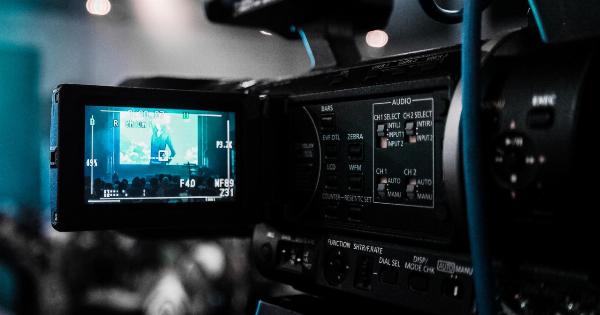Creating a high-quality video requires careful planning and a systematic approach. One crucial aspect of video production is conducting thorough preliminary preparation.
This research stage plays a pivotal role in ensuring a successful video shoot and smooth post-production process. In this article, we will delve into the significance of preliminary preparation and how it can benefit your video project.
1. Defining Your Video’s Purpose
Before diving into any video project, it is essential to clearly define the purpose of your video.
What message do you want to convey to your audience? Are you aiming to educate, entertain, or promote a product? Understanding the purpose of your video will help guide the rest of your preparation and ensure that your final product aligns with your objectives.
2. Identifying Your Target Audience
Knowing your target audience is crucial for creating effective video content. Conducting thorough research to identify your audience’s demographics, preferences, and interests will enable you to tailor your video to resonate with them.
This understanding will guide decisions about the tone, style, and content of your video, ultimately increasing its impact.
3. Scriptwriting and Storyboarding
Once you have defined your video’s purpose and identified your target audience, it is time to work on the script and storyboard.
A well-written script will ensure a coherent and engaging narrative, while a storyboard will help visualize the shots, transitions, and overall flow of your video. Taking the time to plan these elements in advance will save you valuable time during the production process.
4. Location Scouting and Set Design
Depending on the type of video you are creating, finding the right locations or designing an appropriate set is crucial.
Whether you need a natural outdoor setting or a controlled indoor environment, preliminary preparation allows you to scout suitable locations, securing any necessary permits and making arrangements for logistics. Properly planning the physical space your video will be shot in contributes to its overall quality.
5. Equipment Selection and Technical Considerations
Selecting the right equipment for your video project is essential for achieving professional results.
During the preliminary preparation stage, you can research and test different cameras, microphones, and lighting equipment to ensure they meet the specific requirements of your video. Additionally, you can consider technical aspects like frame rate, resolution, and compression formats to guarantee consistent and high-quality footage.
6. Casting and Talent Acquisition
If your video involves actors or talent, conducting auditions and casting sessions during the preliminary preparation phase is crucial.
Finding the right individuals who can effectively portray your characters or deliver your message is essential for a successful video. Taking the time to find suitable talent will ensure that your video resonates with the audience and delivers the desired impact.
7. Budgeting and Resource Allocation
Preliminary preparation also entails the crucial task of budgeting and resource allocation. Conducting a thorough assessment of the costs involved in your video project allows you to allocate resources effectively.
This step includes considering expenses for equipment, location rentals, talent fees, post-production, and any other elements necessary to ensure a smooth production process.
8. Scheduling and Project Management
A well-planned schedule and effective project management are key to a successful video production. Determining the timeline for each stage, from pre-production to post-production, helps you stay on track and ensures timely delivery of your video.
Allocating time for rehearsals, shooting, and editing is crucial to managing your project effectively and avoiding unnecessary delays.
9. Legal Considerations and Copyrights
As part of preliminary preparation, it is vital to consider legal aspects and copyrights associated with your video project. Research any necessary permissions, releases, or licensing requirements to protect yourself from potential legal issues.
Properly addressing these considerations in advance can save you from complications and potential financial liabilities down the line.
10. Creative Inspiration and Benchmarking
Finally, preliminary preparation allows you to seek creative inspiration and benchmark against existing videos or successful campaigns.
Analyzing similar videos in your niche or studying industry trends can provide valuable insights and spark innovative ideas. This research helps you ensure that your video stands out, captures your audience’s attention, and delivers a compelling message.































